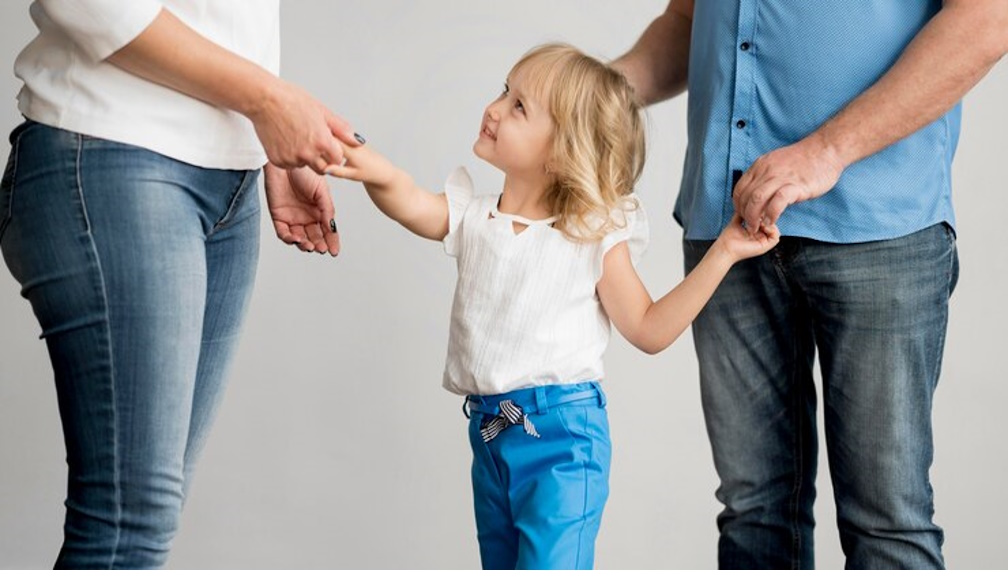Joint Custody vs. Sole Custody: Which Is Better for Your Child?
- Written by The Times

Introduction
When parents separate or divorce, one of the most important decisions they face is how to care for their children. Custody arrangements play a big role in shaping a child's daily life, sense of security and long-term development. Parents are often faced with choosing between joint custody and sole custody, but deciding which is best depends on many personal and legal factors.
In Australia, the Family Law Act focuses on the best interests of the child when making decisions about parenting arrangements. It's not just about where a child lives—it's about how decisions are made and how both parents stay involved in the child's life.
Understanding Custody in Australia
In Australia, the term “custody” isn’t used as much in legal language anymore. Instead, the law refers to “parental responsibility” and “living arrangements.” However, many people still use the terms joint custody and sole custody when talking about who the child lives with and who makes major decisions about their life.
Parental responsibility refers to the duty to make decisions about a child’s health, education, religion and overall welfare. Living arrangements determine where the child physically spends their time.
What Is Joint Custody?
Joint custody generally refers to both parents sharing parental responsibility and sometimes also sharing time with the child. This means both parents are involved in making major decisions and may have equal or significant time with the child.
There are two main types of joint custody:
- Joint legal custody (equal shared parental responsibility): Both parents share the responsibility of making major decisions for the child.
- Joint physical custody (shared care): The child spends significant time living with both parents, though this may not always be a 50/50 split.
Joint custody is encouraged by Australian family law, especially when both parents are capable and there’s no history of violence or conflict that would affect the child’s wellbeing.
What Is Sole Custody?
Sole custody means one parent has full responsibility for making major decisions about the child’s life. This parent usually also has primary physical care of the child, while the other parent may have limited or supervised time with the child.
Sole custody is generally awarded in situations where:
- One parent is absent or unwilling to be involved
- There are concerns about safety, such as domestic violence, substance abuse or neglect
- The relationship between parents is highly conflicted and not in the child’s best interest
The court will only order sole custody if it believes joint arrangements are not practical or safe for the child.
The Role of Family Lawyers
Navigating child custody decisions can be overwhelming, especially when emotions are high. Family lawyers play a key role in helping parents understand their legal rights and responsibilities. They can assist with:
- Drafting parenting plans or consent orders
- Representing you in court if needed
- Negotiating parenting arrangements through mediation
- Offering practical solutions that reduce conflict and stress
Getting legal advice early can prevent misunderstandings and make the process smoother for both you and your child.
Joint Custody: Pros and Cons
Pros
- Maintains strong bonds with both parents: Children can benefit emotionally and mentally from having consistent involvement from both parents.
- Balanced parenting: Shared responsibility can ease the pressure on one parent and provide more stability for the child.
- Better decision-making: With both parents involved, decisions about the child are more balanced and reflect both perspectives.
Cons
- Requires good communication: Joint custody only works if both parents are able to cooperate and communicate well.
- Can be disruptive for the child: Moving between two homes may be tiring or confusing for some children, especially if the homes are far apart.
- Risk of conflict: Disagreements between parents can make shared custody arrangements difficult or harmful if not managed well.
Sole Custody: Pros and Cons
Pros
- Provides stability: The child stays mainly in one home, which can offer consistency in daily routines and schooling.
- Reduces conflict exposure: If the parents have a difficult relationship, sole custody can reduce the child’s exposure to arguments and stress.
- Quick decision-making: One parent makes the decisions, which can be more efficient and less stressful in urgent situations.
Cons
- Limited relationship with one parent: The child may miss out on having a close bond with the non-custodial parent.
- Emotional burden on one parent: The custodial parent takes on most responsibilities, which can lead to stress and burnout.
- Potential for bias: The child may be influenced by one parent’s opinions or beliefs without hearing the other side.
What Do Courts Consider When Deciding Custody?
The primary concern of the court is always the best interests of the child. Some of the main factors include:
- The child’s relationship with each parent
- The ability of each parent to meet the child’s emotional and physical needs
- The wishes of the child, depending on their age and maturity
- Any history of family violence, abuse or neglect
- Practical considerations like living arrangements, work schedules and school locations
Courts usually start with the assumption that equal shared parental responsibility is in the child's best interest unless there’s evidence to suggest otherwise. This does not mean equal time—it means both parents should be involved in decision-making unless it’s unsafe or impractical.
There’s no one-size-fits-all answer when it comes to custody. Both joint and sole custody can work well, depending on the specific needs of the child and the ability of the parents to cooperate. What matters most is creating a supportive, stable and loving environment where your child can thrive.
















